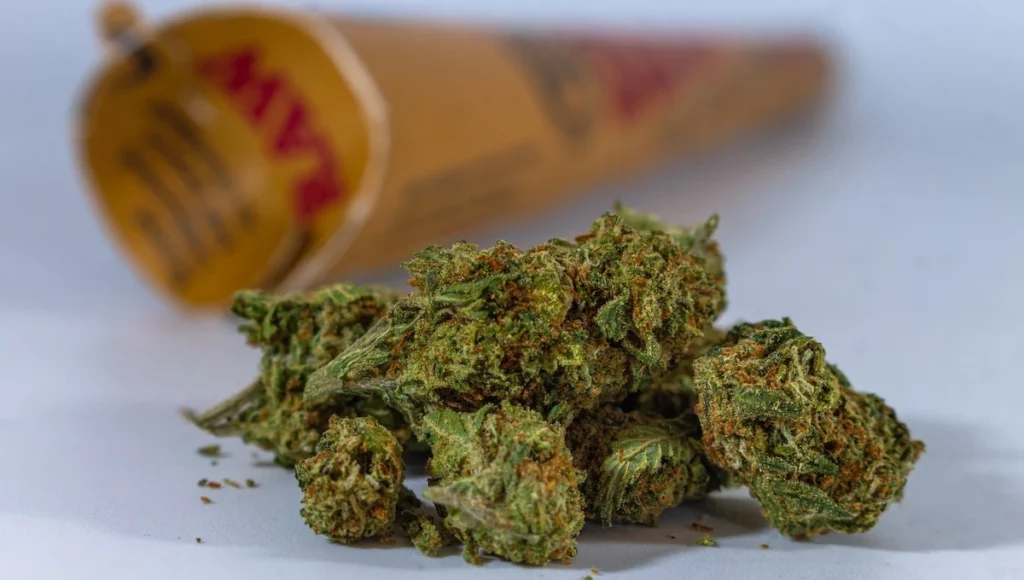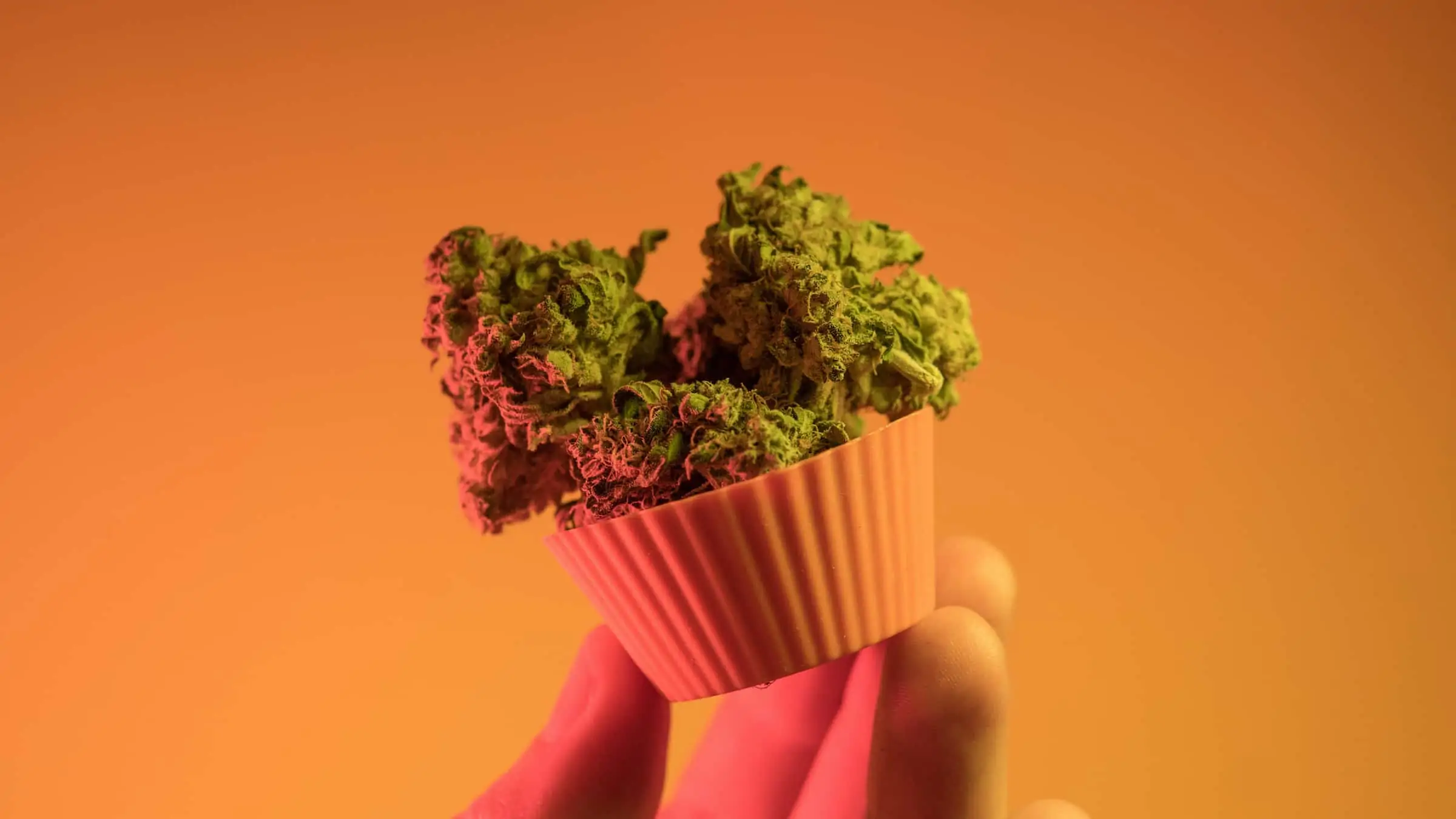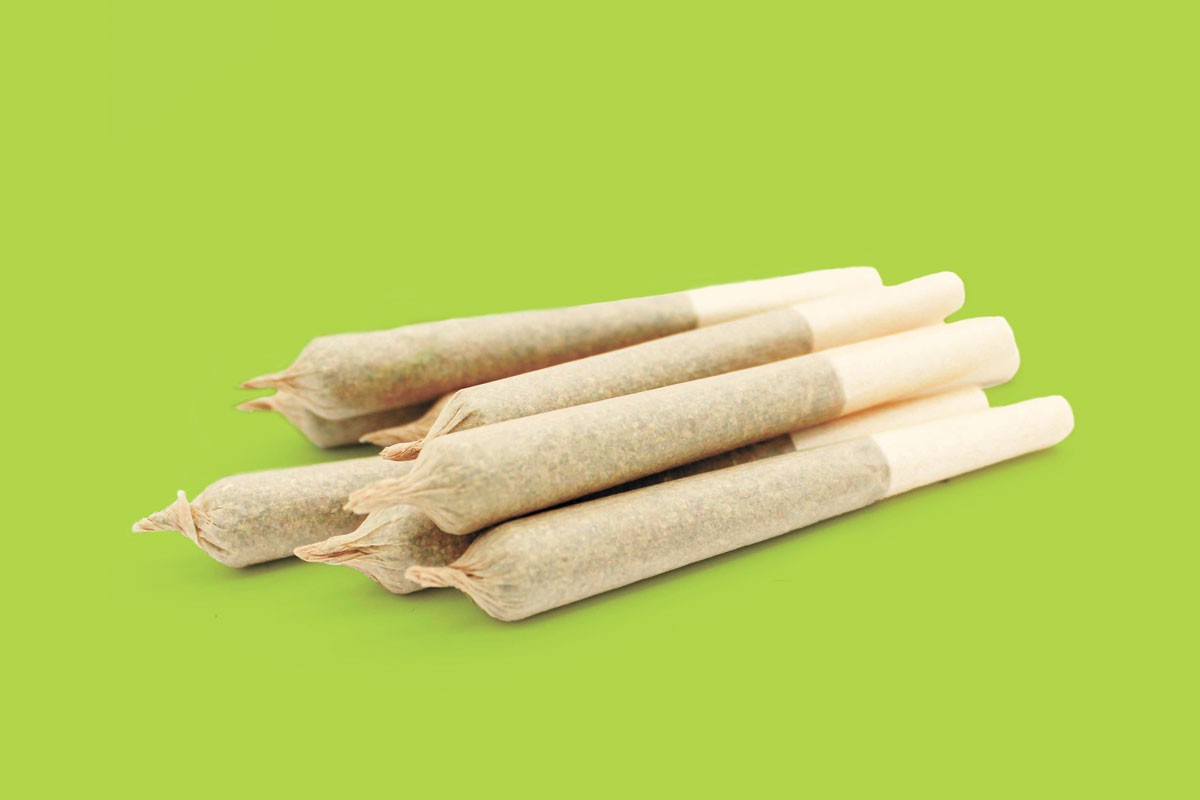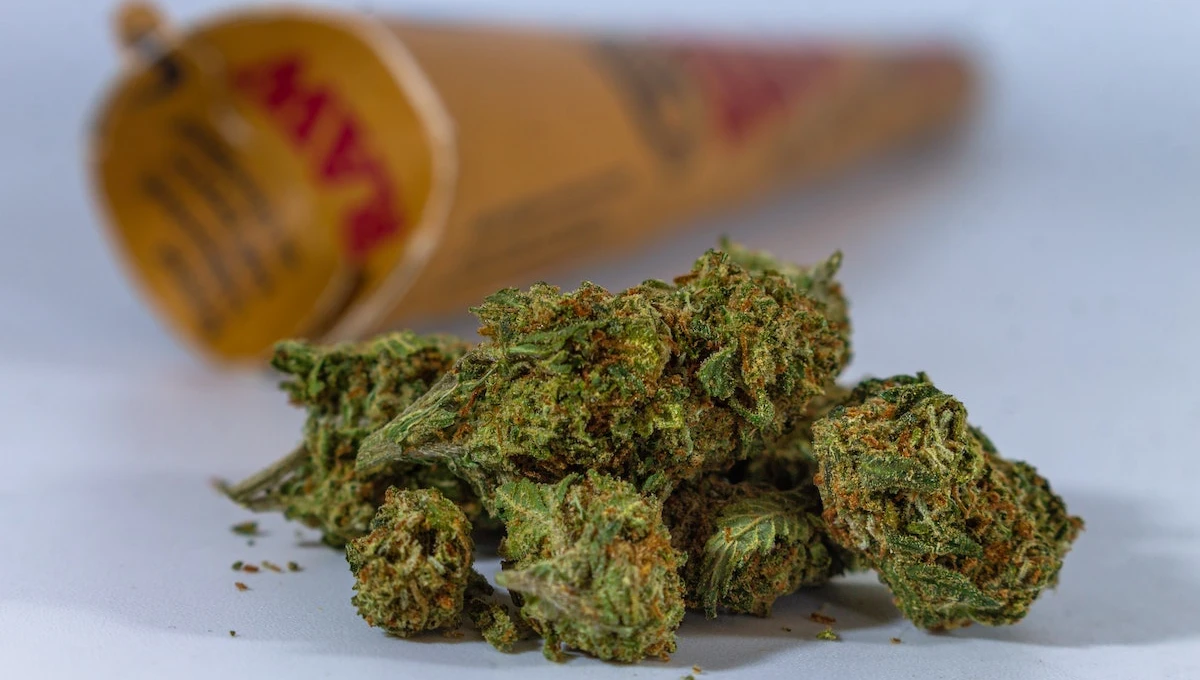The Comparison: THCa vs THCv
The cannabis plant contains over 100 different cannabinoids, each with their own set of effects and medical benefits. Two of the most talked-about cannabinoids right now are THCa and THCv. But what exactly are these cannabinoids and how do they differ from each other? This article will compare and contrast THCa vs THCv so you can understand their unique properties.
What is THCa?
THCa (tetrahydrocannabinolic acid) is a non-psychoactive cannabinoid found in raw, unheated cannabis. It is the precursor to THC, meaning it converts to THC when exposed to heat or light. THCa by itself does not produce a “high” feeling.
THCa has gained attention in recent years for its wide range of potential therapeutic uses:
- Anti-inflammatory effects: THCa is a powerful anti-inflammatory agent and may help conditions like arthritis, IBS, and autoimmune disorders. One study found THCa more potent than CBD for reducing inflammation.
- Neuroprotective properties: Research indicates THCa may protect brain cells and act as an antioxidant. This could make it helpful for neurological conditions like Alzheimer’s disease.
- Anti-nausea: Like THC, THCa may reduce nausea and vomiting. It could provide relief for chemotherapy patients without causing intoxication.
- Analgesic (pain-relieving): THCa activates cannabinoid receptors involved in pain modulation. Early studies show it can effectively reduce pain symptoms.
- Anti-proliferative: THCa inhibits the growth of certain kinds of cancer cells, including prostate and breast cancer cells. More research is still needed.
- Antispasmodic: THCa relaxes muscles and helps calm muscle spasms or cramps. It may aid conditions like multiple sclerosis.
The dosing of THCa is very individualized and depends on the condition it’s being used for. Ingesting 3-15 mg of THCa daily or using a topical product containing THCa may offer therapeutic benefits without significant side effects. Always consult a doctor before using THCa or any cannabinoid as a medical treatment.
What is THCv?
THCv (tetrahydrocannabivarin) is another non-intoxicating cannabinoid that is gaining interest. Here are some key facts about THCv:
- Chemically similar to THC, but with slightly different properties.
- Found primarily in strains of African or Asian cannabis plants like Durban Poison.
- Not usually present in large amounts – THCv makes up less than 1% of most strains.
- Converts to THC with heat exposure, but less efficiently than THCa.
Research into the effects and benefits of THCv is still in early stages. However, initial studies suggest that THCv may offer unique therapeutic properties:
- Appetite suppressant: In contrast to THC, THCv appears to suppress appetite rather than stimulate it. It may help counteract hunger and promote weight loss.
- Diabetes management: THCv may help regulate blood sugar levels and reduce insulin resistance. Mice studies found it improved markers of diabetes.
- Neuroprotective: Like THCa, THCv may act as an antioxidant in the brain and help protect neural pathways. More research is needed.
- Energy booster: Some anecdotal reports suggest THCv may give an energetic, stimulating effect without causing a high. This could be promising for chronic fatigue.
- Focused head high: At higher doses, THCv may produce a mild, uplifting effect on mood and focus. Less intoxicating than the head high from THC.
Due to a lack of large-scale human studies, there are still many open questions around the dosage, safety, and efficacy of THCv. Initial studies used doses of 3-10 mg with minimal side effects. As research continues, THCv could become a valuable medical cannabinoid.
Key Differences Between THCa vs. THCv
Now that we’ve covered the basics of these two cannabinoids separately, let’s compare and contrast THCa and THCv directly:
- Psychoactivity: The main difference is that THCv has some limited psychoactive effects at high doses, while THCa is completely non-intoxicating.
- Precursor status: THCa converts directly to THC when heated. THCv converts less efficiently and is considered a minor precursor.
- Prevalence: THCa is relatively common, present in most raw cannabis plants. THCv is much rarer, found only in trace amounts of some strains.
- Effects on appetite: THCv suppresses appetite, while THCa has neutral effects on hunger and eating.
- Cannabinoid receptors: THCv binds directly to CB1 and CB2 receptors like THC does. THCa does not bind to these receptors but still impacts the endocannabinoid system.
- Cancer cells: Both cannabinoids have anti-cancer properties, but research shows THCa is more potent at inhibiting cancer cell growth.
- Pain relief: THCv has mild pain-reducing effects, while THCa is considered one of the most effective cannabinoids for analgesic properties.
The table below summarizes some of the key differences:
| THCa | THCv |
|---|---|
| Non-psychoactive | Mildly psychoactive at high doses |
| Precursor to THC | Minor precursor to THC |
| Common in raw cannabis | Rare, found in trace amounts |
| No effect on appetite | Appetite suppressant |
| Activates CB1/CB2 receptors | Directly binds to CB1/CB2 receptors |
| Potent anti-cancer properties | Moderate anti-cancer effects |
| Highly effective analgesic | Modest pain relief |
How Are THCa and THCv Used?
THCa and THCv are both typically consumed in one of these methods:
- Raw cannabis juice or smoothies: Juicing raw cannabis leaves is the best way to preserve THCa content. THCa begins degrading at even low temperatures.
- Sublingual tinctures/sprays: Applied under the tongue, tinctures maintain cannabinoids without exposing them to heat.
- Topicals: Creams, gels, and lotions can hold THCa and THCv for localized benefits without systemic effects.
- Dabs: Concentrated preparations like waxes and isolates can be vaporized or dabbed while retaining more cannabinoids than traditional smoking methods.
- Capsules: Decarboxylated oils in capsules will contain THC rather than THCa, but may still offer some of THCv’s benefits.
Raw, uncured cannabis contains the highest levels of THCa, while THCv-dominant strains provide more significant concentrations for isolation. Always look for lab-tested products that verify the specific cannabinoid contents.
The Entourage Effect and the Endocannabinoid System
While THCa and THCv both have individual medicinal attributes, some of their greatest therapeutic potential may come from using them together.
The entourage effect refers to the synergistic interaction between cannabinoids and terpenes. Cannabis compounds work better together as a whole plant than isolated. Consuming THCa and THCv together, along with terpenes and other cannabinoids like CBD, causes them to boost each other’s effects.
Cannabinoids like THCa and THCv also interact with the endocannabinoid system (ECS) in the human body. The ECS regulates biological functions like sleep, pain, mood, and more. Cannabinoids can augment deficiencies in endocannabinoids produced naturally in the body.
Using THCa, THCv, and other cannabis compounds together provides comprehensive support for the ECS. Their combined effects and interactions with each other multiply their overall benefits.
The Future of Cannabinoid Research
The cannabis plant harbors over one hundred identified cannabinoids beyond THC. We’ve only begun scratching the surface when it comes to understanding how these compounds work and what therapeutic potential they hold.
THCa and THCv represent just two of the cannabinoids gaining more attention from scientists as cannabis research expands. There is still much to learn about the mechanisms, dosages, and real-world applications of these compounds.
More high-quality research is essential to elucidate the medical value, safety profiles, and optimal uses of THCa, THCv, and lesser-known cannabinoids. As laws and attitudes toward cannabis evolve, doors are opening to study the full capacities of this multifaceted plant.
For medical cannabis patients and consumers, it’s an exciting time. With each new discovery, we learn more about how the myriad compounds in cannabis can be harnessed to enhance health and wellbeing in new ways.
Wrapping Up (Pun Intended)
THCa and THCv offer distinct and complementary therapeutic properties. As non-intoxicating cannabinoids, they provide medicinal benefits without causing a euphoric high. THCa demonstrates powerful anti-inflammatory, anti-nausea, and pain-relieving effects. THCv shows promise for diabetes, weight loss, neuroprotection, and energizing focus.
While human research is still in the early stages, the future looks promising for potential applications of these and many other lesser-known cannabinoids. The entourage effect allows cannabis compounds to work synergistically for enhanced results. As we continue unraveling the secrets of the cannabis plant, many exciting possibilities lie ahead in cannabinoid medicine.
Hopefully this guide has helped explain the key differences between THCa vs. THCv. There is still much to learn about these unique compounds. As you explore the therapeutic potential of cannabis, let the experts at Suncrafted Cannabis in Middleboro, MA help guide you. We’re always available to answer any questions and recommend products to meet your wellness needs. The world of cannabis is an ever-expanding science. Let’s explore it together.











